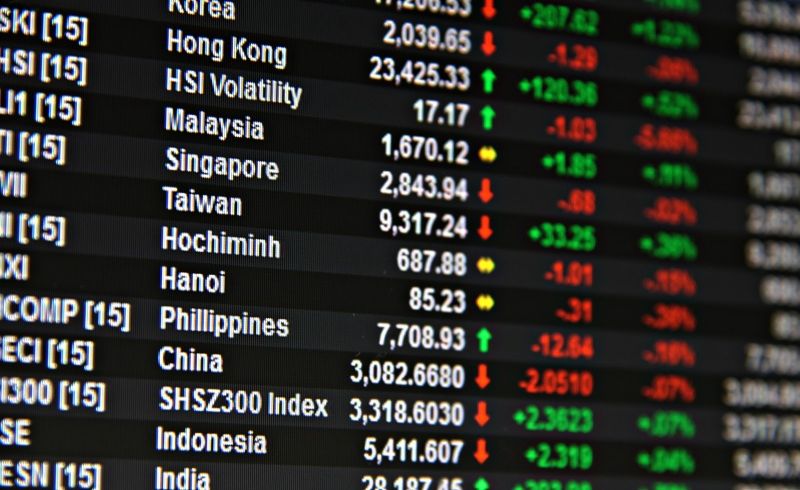Global financial markets are reacting to weak US economic data, which has triggered a decline in the Asian stock market. Wall Street recorded its worst session of the year, with investors increasingly concerned about the Federal Reserve’s stance on interest rates. Meanwhile, tensions over China trade tariffs continue to escalate, adding further uncertainty to global markets.
Asian Stock Markets Decline After Wall Street Losses
Asian stocks are poised for a downturn as futures for Australian and Hong Kong indexes fell. This follows a sharp decline in Wall Street, where the S&P 500 dropped 1.7% and the Nasdaq 100 fell by 2.1%. Investors are worried about the Federal Reserve’s reluctance to cut interest rates amid ongoing inflation concerns.
The economic data released on Friday revealed that long-term inflation expectations among US consumers had risen to their highest level in nearly three decades. Additionally, US business activity has slowed to its lowest pace since September 2023, and existing home sales have declined for the first time in months.
Federal Reserve’s Interest Rate Policy in Focus
Market uncertainty is increasing due to speculation on how the Federal Reserve will respond to weak economic indicators. Chicago Fed Governor Austan Goolsbee acknowledged concerns over inflation but suggested that more time is needed to determine a clear trend.
At the same time, bond yields have reacted significantly. The 10-year US Treasury yield dropped by seven basis points to 4.43%, the lowest in more than two weeks. This trend was mirrored in Australia and New Zealand, where bond yields also declined in early Monday trading.
China Trade Tariffs and Global Market Tensions
Trade tensions between the US and China have resurfaced following reports that President Donald Trump plans to impose a 10% tariff on Chinese goods. Chinese Vice Premier He Lifeng expressed serious concerns about the proposed measures during discussions with US Treasury Secretary Scott Bessent.
Adding to the strain, the US has urged Mexico to implement tariffs on Chinese imports as part of efforts to counteract potential trade disruptions. Furthermore, Trump has instructed the Committee on Foreign Investment in the United States (CFIUS) to tighten restrictions on Chinese investments in sectors such as technology, energy, and other strategic industries.
Euro Strengthens Amid German Election Results
The Euro exchange rate has seen a modest rise of 0.2% against the US dollar following Germany’s recent elections. Conservative opposition leader Friedrich Merz has announced plans to swiftly form a new government, boosting investor confidence in the European market.
Meanwhile, financial markets in Japan remained closed on Monday due to a national holiday, limiting trading activity across the region.
Conclusion
The combination of weak US economic data, Federal Reserve interest rate uncertainty, and escalating China trade tariffs is driving volatility in the Asian stock market. Additionally, movements in the Euro exchange rate are shaping global currency markets. Investors are closely monitoring these developments as financial uncertainty continues to impact trading decisions worldwide.
Read More






 Friday, 27-02-26
Friday, 27-02-26







